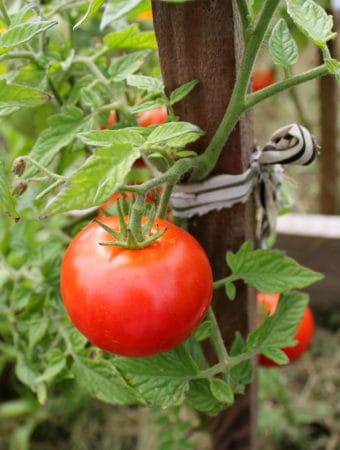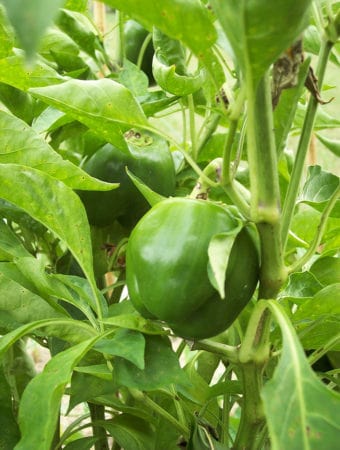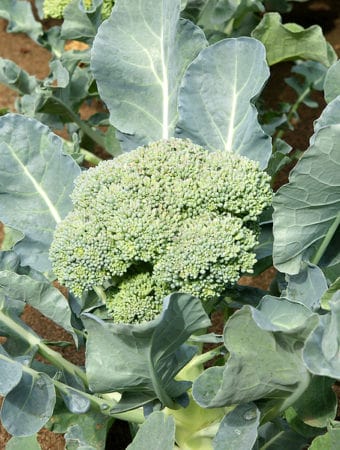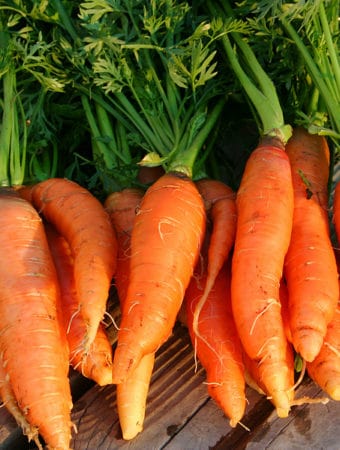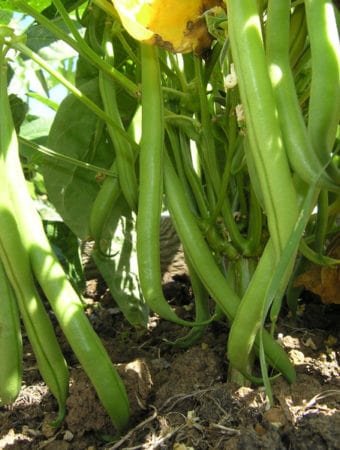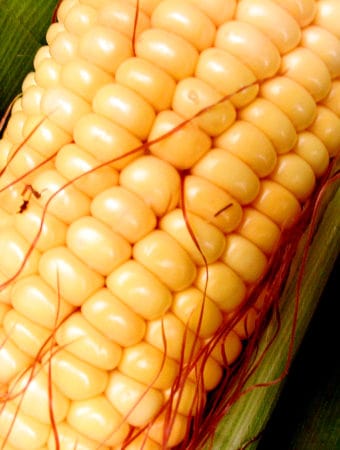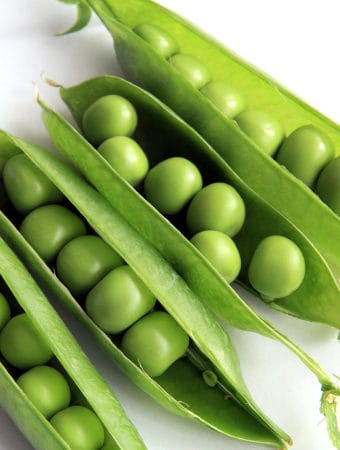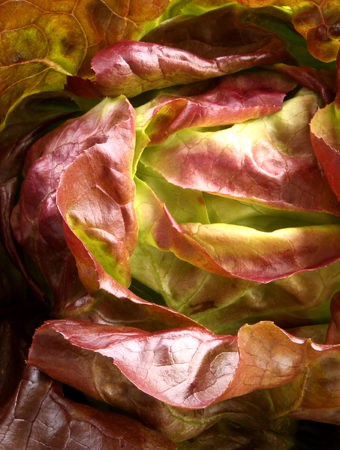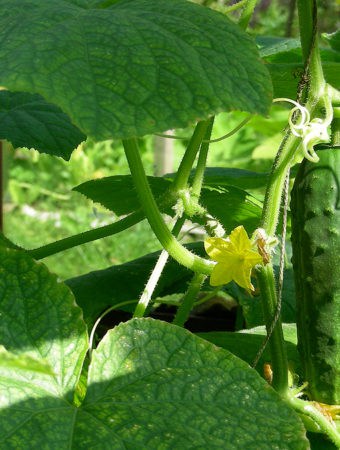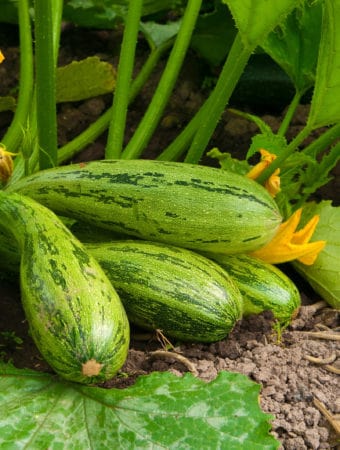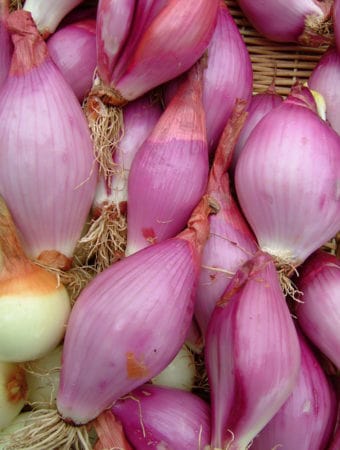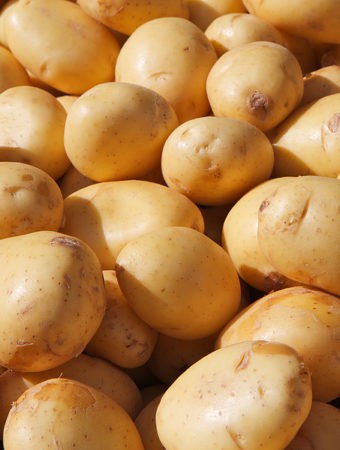Jerusalem artichoke—also called sunchoke—tubers can be planted in the garden as early as 4 to 6 weeks before the last frost, as soon as the soil can be worked in spring. In mild winter regions, Jerusalem artichokes can be planted in autumn for a spring harvest.
Jerusalem artichokes are perennial and are best planted in their own bed. A single tuber can multiply to take over a planting bed. One way to container Jerusalem artichokes is to lift the roots in fall and replant them in spring.
Jerusalem artichokes are planted like potatoes; either an entire tuber can be planted or one that is cut up so that each piece contains an “eye.” Tubers or cut pieces are planted 6 inches (15cm) deep at 12-inch (30cm) spacings. Plant Jerusalem artichokes at the back of a garden where they will not shade other plants.
Good Products for Growing Jerusalem Artichoke at Amazon:
- Garden Safe Snail and Slug Bait
- Bonide Sulfur Fungicide
- Monterey BT Caterpillar Killer
- Neem Bliss 100-% Cold Pressed Neem Oil
- Safer Brand Insect Killing Soap
- PyGanic Botanical Insecticide
Jerusalem artichokes will grow in a wide range of soils as long as they are well-drained. They require moderate moisture until they become well-established.
Each tuber will send up 1 to 12 stalks. If the top 12 to 18 inches (30-45cm) of the stalk are cut off as flowers form, the size of the tubers will increase.
Jerusalem artichokes need about 120 days to mature. For the best flavor and texture, harvest tubers after the first autumn frost when the foliage has begun to die down.
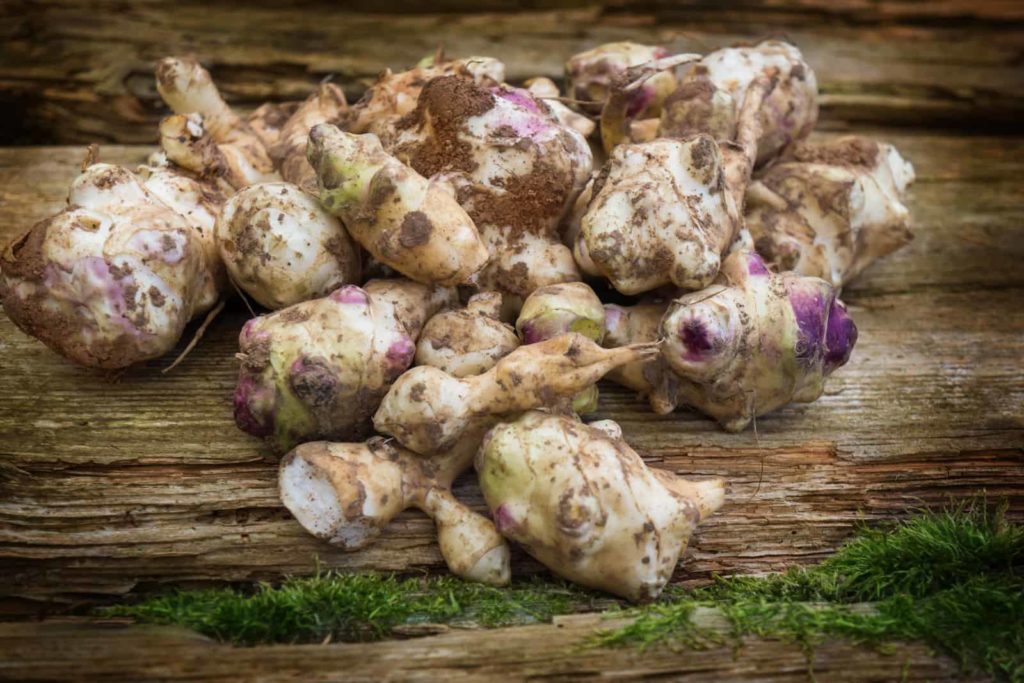
Jerusalem artichoke is also known as sunchoke.
Jerusalem artichoke is a tuberous perennial plant. Jerusalem artichokes are propagated from whole or cut tubers. They are commonly harvested from mid-summer to late autumn.
Jerusalem artichokes should be grown in a permanent location in a bed dedicated just to this crop. Once plants are established and tubers begin to reproduce, Jerusalem artichokes can be difficult to remove from the garden.
Jerusalem artichokes require an 18 to 20-week frost-free growing season. Start new plants in spring 4 to 6 weeks after the last frost for an autumn harvest.
Harvest Jerusalem artichokes in autumn after the leaves have died back and tubers are 3 to 4 inches (7.5-10 cm) in diameter. The flavor will be sweeter after plants have been hit by a light frost.
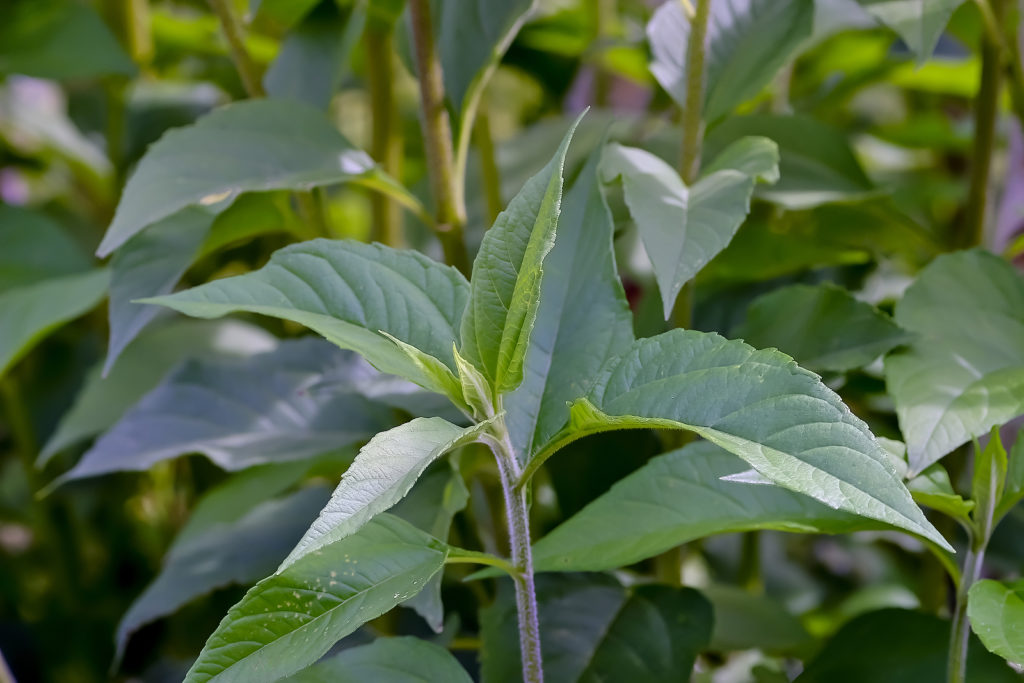
Jerusalem artichoke planting details
- Sowing depth: Set tubers 6 inches deep
- Space between plant after thinning: 12 inches (30cm)
- Days to sprout: 7-12
- Days to harvest: 120
- Storage period: 12-24 weeks
- Seeds per 100-row feet: 15 pounds
- Yield per 100-row feet: 250 pounds
- Suggested varieties: American, Improved Mammoth French
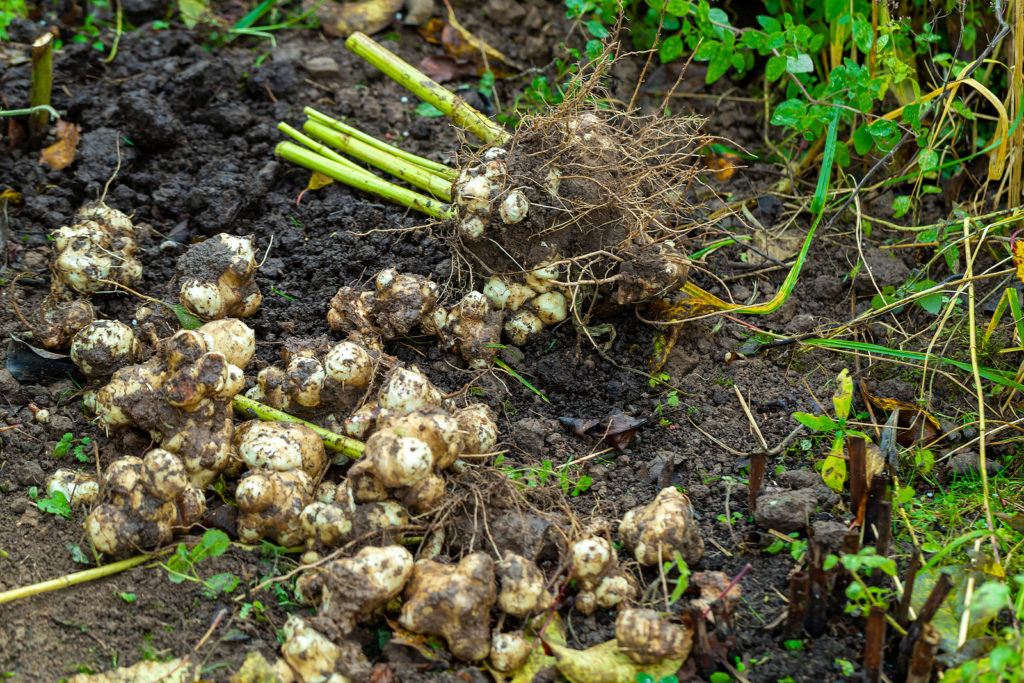
Jerusalem artichoke sowing and planting
- Grow Jerusalem artichokes from whole or partial tubers.
- Plant tubers cut sections of tubers directly in the garden. Choose tubers or sections with one or two eyes or growing nodes per piece. Do not allow cut pieces to dry out before planting.
- Set tubers in a trench about 4 to 6 inches (10-15 cm) deep.
- Space tubers 12 to 24 inches (30-60 cm) apart in all directions.
- Plant tubers in spring 4 to 6 weeks after the last frost for an autumn harvest.
- The optimal planting soil temperature is 50°F to 60°F (10-16°C).
- Tubers should sprout in 7 to 14 days.
- Keep the soil just moist—not wet–until tubers germinate.
- The optimal growing soil temperature is 65°F to 90°F (18-32°C).
- Add aged compost to planting beds in advance of transplanting.
- Jerusalem artichokes prefer a soil pH range of 5.8 to 6.2.
- Grow Jerusalem artichokes in full sun for best yield.
- Fertilize with fish emulsion or a soluble complete fertilizer at half strength.
- Plant in a dedicated bed; Jerusalem artichokes don’t grow well with other crops.
- Limit the spread of roots by installing wood, plastic, or metal barriers at least 24 inches (60 cm) deep encircling the planting bed. Stray tubers left in the garden will sprout the following season.
More tips at How to Grow Sunchokes.
Interplanting: Plant Jerusalem artichokes in a dedicated bed; Jerusalem artichokes don’t grow well with other crops.
Jerusalem artichoke planting calendar
- 4- 6 weeks after the last frost in spring: set out tubers in the garden for a fall harvest.
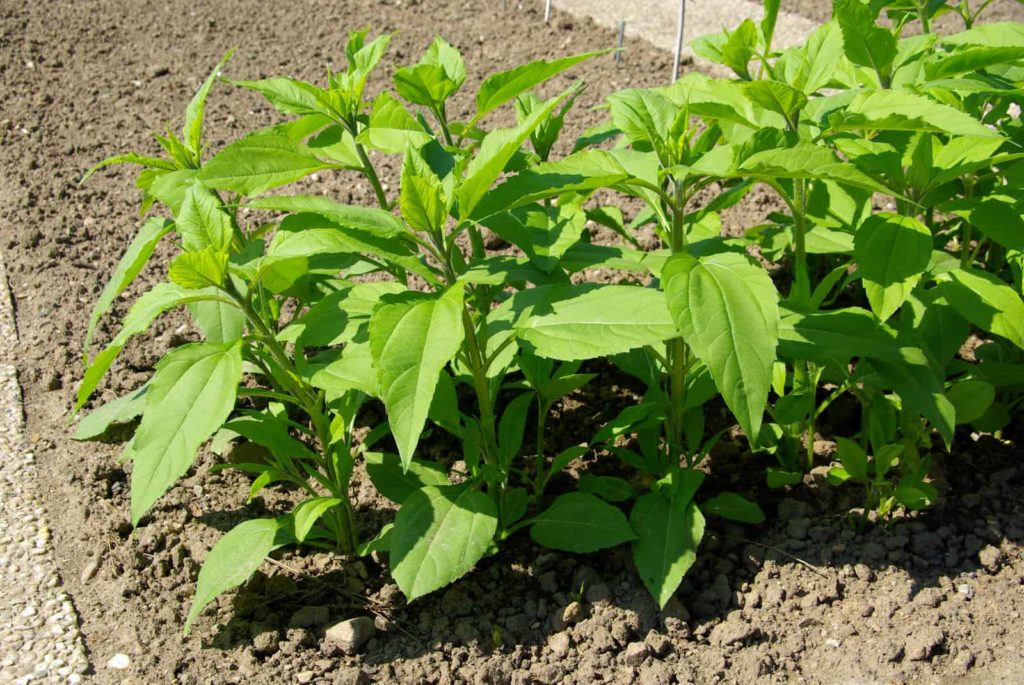
Jerusalem artichoke planting dates
(These dates are for the Northern Hemisphere)
| Average date of the last frost | Planting dates |
| Jan. 30 | Jan. 1-Mar. 1 |
| Feb. 8 | Jan. 10-Mar. 10 |
| Feb. 18 | Jan. 20-Mar. 20 |
| Feb. 28 | Feb. 1-Apr. 1 |
| Mar. 10 | Feb. 10-Apr. 10 |
| Mar. 20 | Feb. 20-Apr. 20 |
| Mar. 30 | Mar. 1-May 1 |
| Apr. 10 | Mar. 10-May 10 |
| Apr. 20 | Mar. 20-May 20 |
| Apr. 30 | Apr. 1-June 1 |
| May 10 | Apr. 10-June 10 |
| May 20 | Apr. 20-June 10 |
| May 30 | May 1-June 10 |
| June 10 | May 10-June 20 |
Jerusalem artichoke recommended varieties
- ‘Stampede’ produces large white tubers.
- ‘Boston Red’ produces red-skinned tubers.
- ‘Mammoth French White’ grows well in all regions.
Botanical Name: Helianthus tuberous
Jerusalem artichoke is a member of the Asteraceae family; other members of this family are sunflowers, artichokes, and dandelions.
Related articles:
How to Plant and Grow Jerusalem Artichokes – Sunchokes
Jerusalem Artichoke – Sunchoke Plant Starting Tips
How to Harvest and Store Jerusalem Artichokes – Sunchokes
Five Ways to Cook and Serve Jerusalem Artichokes – Sunchokes
Garden Planning Books at Amazon:
- Vegetable Garden Grower’s Guide
- Tomato Grower’s Answer Book
- Vegetable Garden Almanac & Planner
- Kitchen Garden Grower’s Guide Vegetable Encyclopedia


